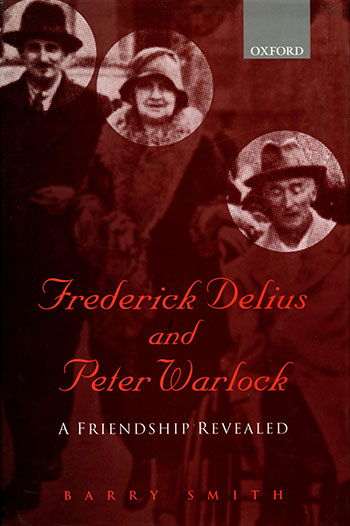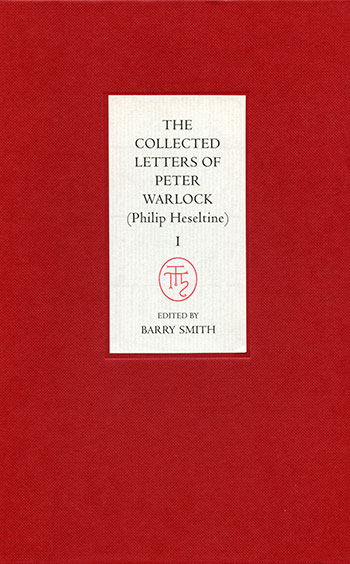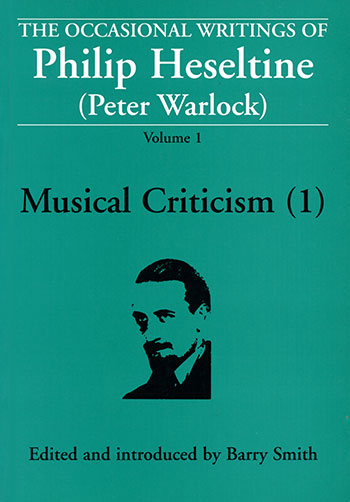
Published: 2000, ISBN 978-0198167068
Frederick Delius and Peter Warlock: A Friendship Revealed
By Barry Smith
This long awaited publication is aptly prefaced with two quotations:
“I value his letters to me among my most precious treasures” (Heseltine to his mother, 13th December 1911)
Heseltine to his mother, 13th December 1911
“I thank you for the confidence you bestow upon me in writing me so thoroughly & frankly all about your life, thoughts & doings – it is a letter from a real and loving friend…”
Delius to Heseltine, 2nd January 1914
Who better equipped than Barry Smith to bring together this comprehensive and highly illuminating collection of nearly 400 letters, most of which have not hitherto appeared in print. Dr Smith has already more than won his spurs with his eminently level-headed biography of Warlock, published originally as a hardback in 1994 and currently available as a paperback. Subsequently his edition of the whole of Heseltine’s journalism about music – erudite, combative and always very readable – was published by Thames in four volumes. Dr Smith has proved tireless in pursuit of the facts and scrupulous in his editing; these qualities serve him well in the new volume. His achievement is all the greater when you consider that he lives in Cape Town and is thus somewhat removed from many of the prime information sources so vital in addressing such a task.
Composers in general have not shown much willingness to unbutton themselves when corresponding with their fellow composers. But here is an exception – something altogether more illuminating: a close friendship sustained over 19 years by two complex, articulate men of very different ages prepared to reveal themselves in a wide variety of ways. On the one side Delius, the hard-headed father figure; on the other Heseltine, the young and deeply insecure hero-worshipper grappling none too successfully with the problems of growing up. At least, that was how it began, with Heseltine 16 and Delius 49. Both were from well-to-do backgrounds, were strongly anti-establishment and rebels by nature, and were largely self-taught. The relationship developed into something of an altogether deeper and more comprehensive order, with both parties ever-ready to discourse on almost every topic under the sun: careers, religion, family, friends, sex, music-world gossip, and the music of other composers. Heseltine’s vulnerability is often painful: for all his intelligence and curiosity he was slow to mature and very confused about how he was to proceed in life, a confusion which, alas, never resolved itself There were those – Beecham among them – who said subsequently that Delius’s influence was not necessarily beneficial.
The letters are grouped in years, each with an editorial piece placing the correspondence in context. Footnotes (alas, in extremely small type) illuminate facts and names, and due deference is paid to the example set by Lionel Carley in his two-volume collection (1988) of Delius correspondence.
This volume of nearly 500 pages, including 13 photos, is a stimulating – if sometimes unsettling – read, well worth the wait. It’s certainly a major addition to the Delius/Warlock canon. Even some of the day-to-day material about such matters as travel arrangements serves to illuminate.
There’s only one fly in the ointment: despite financial support from interested parties, the selling price puts the book well beyond the pockets of so many who would wish to own it, a dilemma quite often encountered with this publisher (at one point, I hear, they were going to ask £65!) and also Ashgate/Scolar. One can only hope, perhaps in vain, for a paperback version eventually but, in the meantime, try by fair means or foul to get your hands on a copy.
By John Bishop
Buy from: Amazon



